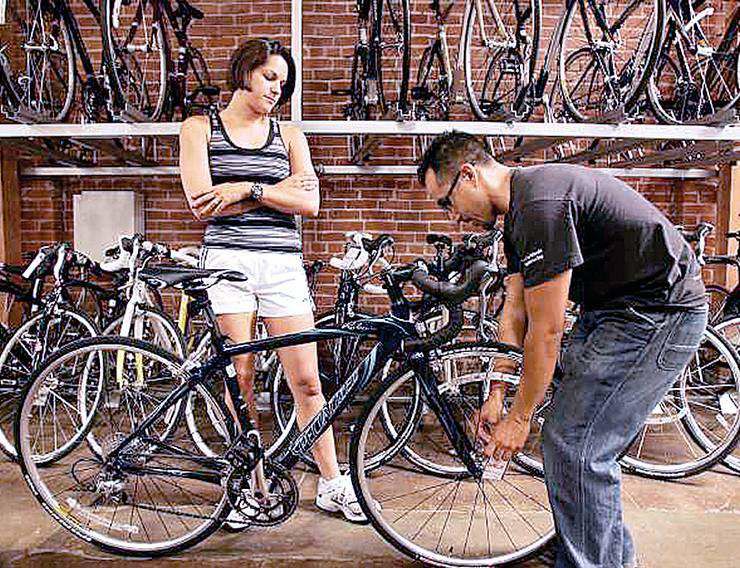Bikes help commuters navigate through tough economic times
Published 5:00 am Friday, July 11, 2008

- Salesman Willie Jimenez helps shopper Felicia Noland in Santa Monica, Calif., at CynergyCycles, which has seen its sales rise 20 percent in the last month.
LOS ANGELES — High gasoline prices are fueling bicycle sales and on some days Michael Hall’s blood pressure.
At least three times a week, Hall pedals to his job in Hollywood from his home in northern Glendale, a 25-mile round-trip commute that is faster on two wheels than four.
“It’s definitely saving me money, but may be taking years off my life due to the fact that it’s a terrifying experience,” said Hall, a 46-year-old television editor.
The problems, he said, include the cell phone-using, “coffee-drinking, shaving, makeup-putting-on person who’s not paying attention” and the motorists who swear at him if he slows them down “for a nanosecond.”
For his trouble, Hall saves about $150 a month, which makes it worthwhile.
Industry sales numbers for the year aren’t available yet, but anecdotal evidence is widespread that bicycle companies are benefiting from what’s hurting other businesses, said Tim Blumenthal, executive director of Bikes Belong Coalition, an advocacy group.
“Bicycles for transportation has not been a big thing until very recently,” he said. “April and particularly May, and now June, have been phenomenal months. This is across the board and across the country.”
As the weather has improved — and pump prices have continued to rise — merchants have noticed an increase.
“This is the first time we’ve seen this much growth from the gas problem,” said Jim Whitsett, owner of Cynergy Cycles in Santa Monica, Calif., where sales are up “a noticeable 20 percent just in the past 30 days.”
Increasingly, people who used to view bicycles as playthings or exercise tools now see them as workhorses. So they’re outfitting them with fenders, racks, bags — anything that will make them more functional.
It’s too soon, though, to call 2008 a boom year for bikes, said Fred Clements, executive director of the National Bicycle Dealers Association in Costa Mesa, Calif. People who buy bicycles for fun or fitness still represent the largest chunk of the market, he said, and they might be less willing to spend this year, given the troubled economy.
“We’re certainly having an uptick in utility use, but we may have a corresponding decline in recreational purchasing,” he said. “You can’t underestimate the power of a weak economy to make people rein in some of their spending.”






